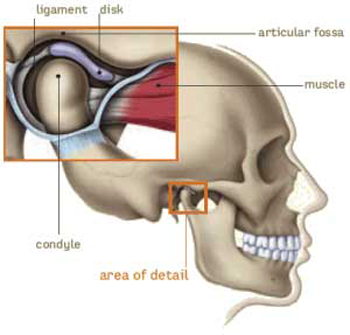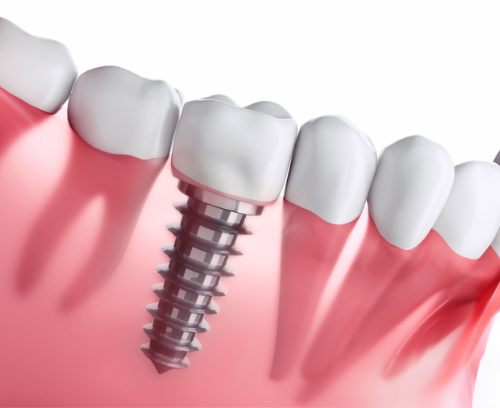Do I Need a TMJ Dentist to Fix My Crown?
I think I need to see a TMJ dentist or specialist about my crown. I got the crown in late February, and I’ve had problems ever since. My dentist has made “adjustments” five times, but my bite is off, and I have jaw and neck pain. I didn’t have these problems in the past, so I know it must be the crown. My dentist said he did everything that he could and that the bite paper looks like everything is even. So why am I still having pain? Should I see a TMJ specialist even though I know the crown is really the problem? Thanks. Amanda from Fairfax, VA
Amanda,
Thank you for your question.
A dentist with advanced training and skill can ensure your bite is aligned correctly. A dentist needs to understand jaw anatomy and how it affects your bite. A poor-fitting crown can cause or worsen TMJ symptoms. A dentist trained to diagnose and treat TMJ can help.
Your dentist may lack the additional training required to ensure your bite is correctly aligned. Repeated adjustments sometimes work, but they can also make things worse. If a dentist adjusts a crown too much, it will not connect with the opposite tooth.
Why See a TMJ Dentist?

If you see a TMJ dentist, they will examine your crown and jaw joint to determine the optimum crown position.
- After five attempts to adjust your bite, you need a second opinion if your dentist still has not resolved the problem.
- You may be biting incorrectly or moving your mouth in a way that compensates for the poor bite. If so, it can stress your jaw muscles and joints. Your TMJ problems will continue to progress until a dentist corrects your bite.
- Depending on what your dentist did to adjust your bite, you might need a new crown. But a correctly aligned bite will save you discomfort, pain, and money for the long term.
Schedule an appointment for a consultation with a least two different TMJ dentists. Check their training and credentials before you make the appointments.
Rocky Hill, Connecticut dentist Dr. Thaddeus Michalski, sponsors this post.
What Can I Do About a Loose Dental Implant?
My dentist placed three implants in January, and now one of them is loose. I am concerned about what went wrong and am losing trust in my dentist. What options might a dentist give me for fixing a loose dental implant? Thank you. Manal from Seattle
Manal,
Thank you for contacting our office. Although Dr. Michalski would need to examine your implant, we can explain factors that affect treatment for a lose implant.
What Can You Do About a Loose Dental Implant?
If your dental implant is loose, you should promptly contact your implant dentist, oral surgeon, or periodontist. Your doctor will examine the implant parts and gum tissue and take a 3-D CT scan of your bone to identify why your implant is loose. Your doctor will recommend treatment based on the cause of the loose implant.
Why Get Prompt Treatment for a Loose Implant?
You should get prompt treatment for a loose dental implant because it is a threat to your oral health. Without treatment, an infection can develop and worsen. If there is any chance of saving the implant, delaying treatment will result in dental implant failure. Implant parts include an artificial root, an abutment (connector), and a dental crown. Although dental implants have a 95 percent success rate, an untreated loose implant will fail.
What Causes a Loose Dental Implant?
Faulty implant parts, gum disease, implant location, failed osseointegration (fusion of the implant and bone), and other factors can contribute to a loose dental implant. But you will need an exam from your doctor to determine the culprit.
- Implant quality, type, or size – Faulty design of the artificial root or abutment or using the wrong implant type or size can weaken and loosen it.
- Implant location – If an implant is not in the optimal place, it can loosen.
- Insufficient torque – If your doctor does not sufficiently secure the implant in your bone, it can loosen.
- Lack of bone volume – Areas of low bone volume will not support an implant.
- Gum disease – Diseased gum tissue destroys bone tissue and leaves implants without support.
- Stress on the implant – Prematurely attaching replacement teeth to implants can loosen them. Also, failure to maintain a soft-food diet can disturb implant sites and cause looseness.
- Failed osseointegration – Implants will be unstable if the jawbone and implant do not fuse.
What Is the Treatment for a Loose Dental Implant?

- Implant removal
- Gum disease treatment
- Bone graft
- Three to four months of healing
- Replacing the implant, possibly in a new position
- Alternative treatment
A skilled implant dentist can restore your oral health and help your dental implants succeed with proper planning.
Dr. Thaddeus Michalski, a Rocky Hill, Connecticut dentist and Diplomate of the International Congress of Oral Implantologist, sponsors this post.


